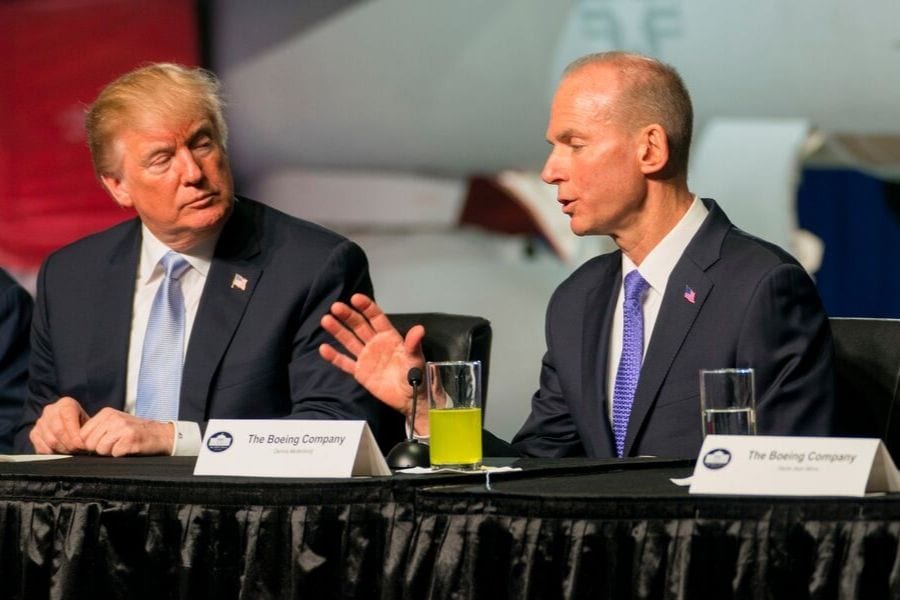
How Boeing vs. Airbus became Trump vs. Europe
The Trump administration said it would tax as much as $7.5 billion of European exports annually, the government's boldest-ever step to protect Boeing, the United States' largest manufacturing exporter
 President Donald Trump with Dennis Muilenburg, Boeing's chief executive, during a roundtable discussion at Boeing's facility in St. Louis, Mo., March 14, 2018. Boeing won a long-running trade dispute with Airbus, but it came with complications for a company still dealing with the fallout from two deadly accidents. Image: Doug Mills/The New York Times
President Donald Trump with Dennis Muilenburg, Boeing's chief executive, during a roundtable discussion at Boeing's facility in St. Louis, Mo., March 14, 2018. Boeing won a long-running trade dispute with Airbus, but it came with complications for a company still dealing with the fallout from two deadly accidents. Image: Doug Mills/The New York Times
Just weeks after his inauguration, President Donald Trump toured Boeing’s factory in North Charleston, South Carolina, holding a rally with workers, admiring a new 787 Dreamliner and calling on the company to bring down the cost of new Air Force One planes.
But Boeing wanted something from Trump, too.
During a private conversation at the event, Boeing’s chief executive, Dennis A. Muilenburg, talked to Trump about a long-running trade dispute between the United States and the European Union that had its roots in the pitched rivalry between Boeing and Airbus, according to three people familiar with the meeting, who spoke on the condition of anonymity to discuss a delicate matter.
The case, which centered on subsidies that Europe provides Airbus, had been working its way through the World Trade Organization for years, but an end was finally in sight. In the event that it was settled on Trump’s watch, Muilenburg urged the president to enforce the ruling, which would mean levying tariffs on European goods.
On Wednesday, Boeing got its wish. After an announcement by the World Trade Organization, the Trump administration said it would tax as much as $7.5 billion of European exports annually.
It was the largest-ever authorized retaliation in the organization’s history, adding another layer of complexity to a global economy already rattled by brewing trade wars and further straining relations between the United States and the EU. And it was the government’s boldest-ever step to protect Boeing, the United States’ largest manufacturing exporter.
©2019 New York Times News Service




